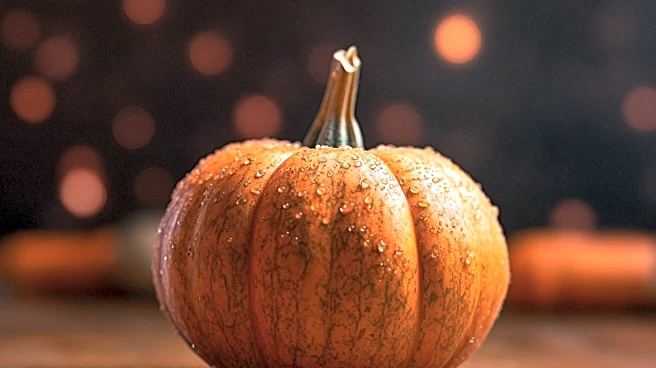What's Happening?
A recent survey conducted by Dating.com has identified Halloween as the loneliest day of the year for single individuals, surpassing traditionally expected days like Valentine's Day and New Year's Eve.
The survey, which included 1,000 single participants, found that 59% of respondents consider Halloween to be one of the most emotionally challenging holidays. The survey highlights that 79% of singles feel lonely on Halloween, with over half admitting to crying when opening the door to trick-or-treaters. Social media exacerbates these feelings, with 73% of singles believing that it intensifies their sense of loneliness. Many singles pretend to have plans or act as if they are fine, despite feeling isolated.
Why It's Important?
The findings underscore a broader issue of loneliness, which has been described as an epidemic in the United States, particularly in urban areas like New York City. The emotional impact of loneliness is significant, with former U.S. Surgeon General Vivek Murthy equating its mortality impact to smoking 15 cigarettes a day. This survey sheds light on the hidden emotional struggles faced by singles during holidays, which are often perceived as times of joy and togetherness. The results call attention to the need for greater awareness and support for individuals experiencing loneliness, especially during festive seasons.
What's Next?
As the holiday season approaches, there may be increased efforts to address loneliness among singles. Public health officials and community organizations might consider initiatives to foster social connections and provide support for those feeling isolated. Additionally, there could be a push for more inclusive holiday celebrations that consider the emotional well-being of all individuals, regardless of their relationship status.
Beyond the Headlines
The survey results highlight the cultural pressures and expectations surrounding holidays, which can inadvertently marginalize single individuals. This could lead to a broader discussion about societal norms and the importance of creating inclusive environments that celebrate diverse experiences and relationships. The findings may also prompt further research into the psychological effects of social media on loneliness and mental health.









